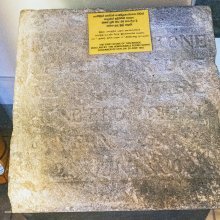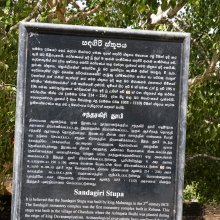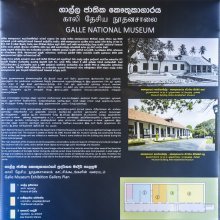Antu, Amtu, Āṇṭu: 4 definitions
Introduction:
Antu means something in Hinduism, Sanskrit, Tamil. If you want to know the exact meaning, history, etymology or English translation of this term then check out the descriptions on this page. Add your comment or reference to a book if you want to contribute to this summary article.
Images (photo gallery)
In Hinduism
Vyakarana (Sanskrit grammar)
Source: Wikisource: A dictionary of Sanskrit grammarAntu (अन्तु).—Affix of the impera. 3rd pers. pl. Paras. substituted for the original affix झि (jhi). e.g. भवन्तु, कुर्वन्तु (bhavantu, kurvantu)

Vyakarana (व्याकरण, vyākaraṇa) refers to Sanskrit grammar and represents one of the six additional sciences (vedanga) to be studied along with the Vedas. Vyakarana concerns itself with the rules of Sanskrit grammar and linguistic analysis in order to establish the correct context of words and sentences.
Languages of India and abroad
Sanskrit dictionary
Source: Cologne Digital Sanskrit Dictionaries: Monier-Williams Sanskrit-English Dictionary1) Antu (अन्तु):—m. (said to be [from] √am) a guardian, protector, [cf. Lexicographers, esp. such as amarasiṃha, halāyudha, hemacandra, etc.]
2) a mark, characteristic, [cf. Lexicographers, esp. such as amarasiṃha, halāyudha, hemacandra, etc.]
Sanskrit, also spelled संस्कृतम् (saṃskṛtam), is an ancient language of India commonly seen as the grandmother of the Indo-European language family (even English!). Closely allied with Prakrit and Pali, Sanskrit is more exhaustive in both grammar and terms and has the most extensive collection of literature in the world, greatly surpassing its sister-languages Greek and Latin.
Kannada-English dictionary
Source: Alar: Kannada-English corpusAṃṭu (ಅಂಟು):—
1) [verb] to come in to physical contact with; to touch.
2) [verb] to stick oneself to another; to be stuck to.
3) [verb] to happen; to befall; to occur.
4) [verb] to mingle oneself with abother.
5) [verb] to gently run on with the palm, as from affection.
6) [verb] to remain at a place unmoved.
7) [verb] to fall upon (in anger).
8) [verb] to have sexual intercourse.
9) [verb] to run behind as to catch or to hunt; to pursue; to chase.
10) [verb] to start quarrelling with.
11) [verb] (dial.) to be congenial, agreeable to one’s disposition (as a medicine);12) [verb] 12) to remain firm and resolute; to stick to (a policy, view, etc.);13) [verb] 13) (fig.) to be with (another person, usu. with a selfish purpose);14) [verb] ಅಂಟಿಕೊ [amtiko] aṇṭiko to be fixed or attached by adhesion; to be stuck to; to adhere to; 2. to remain in the same place, job etc.; 3. to remain fixed in the memory; 4. to remain in close contact with or cling to another person; 5. to remain firm and resolute (in respect of a principle); ಅಂಟಿಕೊಂಡು ಕುಳಿತಿರು [amtikomdu kulitiru] aṇṭikoṇḍu kuḷitiru (fig.) to sit at a place for so long giving an impression that one is a natural part of that place; to be a part of the furniture.
--- OR ---
Aṃṭu (ಅಂಟು):—
1) [noun] the quality of sticking; adhesiveness.
2) [noun] any sticky agent; an adhesive, gum or paste.
3) [noun] any filthy substance, such as mud, dung etc; dirt.
4) [noun] the monthly discharge from the uterus; menses.
5) [noun] a part of a plant cut for grafting or planting as it is to get a new plant.
6) [noun] contact; physical meeting of persons.
7) [noun] that which, one who supports, sustains, shelters or maintains; a support; a prop.
8) [noun] ಅಂಟಿನ ಉಂಡೆ [amtina umde] aṇṭina uṇḍe a small ball-shaped sweet eatable made using edible glue; ಅಂಟಿನ ಕೋಲು [amtina kolu] aṇṭina kōlu = ಅಂಟುಕೋಲು [amtukolu]; ಅಂಟಿನ ಮರ [amtina mara] aṇṭina mara the tree Embryopteris glutinfera; ಹೊಟ್ಟೆ ಬೆನ್ನಿಗೆ ಅಂಟಿಕೊಂಡಿರು [hotte bennige amtikomdiru] hoṭṭe bennige aṇṭikoṇḍiru (the belly) become very thin (from hunger or want of food); ಅಂಟು ತಪ್ಪಿದರೆ ನಂಟು ತಪ್ಪೀತೆ [amtu tappidare namtu tappite]? aṇṭu tappidare naṇṭu tappīte (prov.) mere out of contact, need not severe the relation.
--- OR ---
Aṃtu (ಅಂತು):—
1) [adverb] in that way, manner; like that; similar to.
2) [adverb] finally; with all this.
3) [adverb] (in restricted sense of) 'at least';4) [adverb] ಅಂತುಂ ಇಂತುಂ [amtum imtum] antum intim (adv .) in any way; in whatever manner; anyhow; ಅಂತು ಇಂತು [amtu imtu] antu intu = ಅಂತುಂ ಇಂತುಂ [amtum imtum]; ಅಂತು ಇಂತು ಕುಂತಿ ಮಕ್ಕಳಿಗೆ ರಾಜ್ಯವಿಲ್ಲ [amtu imtu kumti makkalige rajyavilla] antū intū Kunti makkaḷige rājyavilla (prov.) all said and done, finally, the deserved is deprived of his due.
--- OR ---
Aṃtu (ಅಂತು):—
1) [noun] the last point; the final point; end; apex; maximum or minimum level; extreme point;2) [noun] (dial.) the inner feeling, opinion not made known to others; a secret;3) [noun] ಅಂತುಗೊಂತು [amtugomtu] antugontu the details of one’s being, nature, qualities, etc.; whereabouts; ಅಂತುಪಾರು [amtuparu] antupāru termination; end; conclusion.
--- OR ---
Aṃtu (ಅಂತು):—[noun] a rosary made of the berries of Elaeocarpus ganitrus.
--- OR ---
Aṃtu (ಅಂತು):—[noun] (dial.) one of the parts into which a whole is made of or is divisible or is divided; a division.
--- OR ---
Aṃtū (ಅಂತೂ):—
1) [adverb] in spite of; despite.
2) [adverb] (before a negative verb) (not) even.
Kannada is a Dravidian language (as opposed to the Indo-European language family) mainly spoken in the southwestern region of India.
Tamil dictionary
Source: DDSA: University of Madras: Tamil LexiconAṇṭu (அண்டு) [aṇṭutal] 5 transitive verb < அடு¹-. [adu¹-.] [K. aṇḍisu.]
1. To approach; கிட்டுதல். அண்டினள் சேர்தலும் [kittuthal. andinal serthalum] (கந்தபு. திருமண. [kanthapu. thirumana.] 45).
2. To fit, to be appropriate to; ஏற்றல். ஆகார மாமுவமைக் கண்டா தென்னும் [erral. agara mamuvamaig kanda thennum] (ஞானவாசிட்டம் முமுட்சு. [gnanavasittam mumudsu.] 27).
3. To have as a support; ஆசிரயித்தல். ஒருவனை யண்டிப்பிழைக்க. [asirayithal. oruvanai yandippizhaikka.]
4. To take refuge in, retire to for shelter; ஒதுங் குதல். அண்ட நிழலில்லாமற் போனாலும். [othung kuthal. anda nizhalillamar ponalum.]
--- OR ---
Aṇṭu (அண்டு) noun < Telugu aṇṭu. 1. Unit in a string of beads, link in a chain; மணிவட முதலிய வற்றின் உரு. நாலு அண்டு அந்தச் சங்கிலிக்கு இன்னும் வேணும். [manivada muthaliya varrin uru. nalu andu anthas sangilikku innum venum.] Local usage
--- OR ---
Antu (அந்து) noun [K. andi.] A small grey-winged insect found in stored paddy; நெற்பூச்சி. அந்துகடிதுண்டுபோய கதிர்நெல்லும் [nerpuchi. anthugadithundupoya kathirnellum] (பிரபோதசந்திரோதயம் [pirapothasandirothayam] 19, 6).
--- OR ---
Antu (அந்து) adverb < Kanarese antu. In that way, thus; அப்படி. அந்துசெய்குவனென [appadi. anthuseykuvanena] (கம்பராமாயணம் இராவணன்வதை. [kambaramayanam iravananvathai.] 61).
--- OR ---
Antu (அந்து) noun < anta. End; அந்தம் ஆதியந் தகன்ற [antham athiyan thaganra] (சீவகசிந்தாமணி [sivagasindamani] 3082).
--- OR ---
Antu (அந்து) noun < andu. Chain for an elephant’s leg; யானைக்காற் சங்கிலி. அந்துப் போதி கை. [yanaikkar sangili. anthup pothi kai.]
--- OR ---
Āṇṭu (ஆண்டு) (ஆட்டை [attai] in comp.) noun < ஆள்-. [al-.] Also யாண்டு. [yandu.] [Telugu: ēḍu, M. āṇḍu.]
1. Year; வருஷம். [varusham.] (சிலப்பதிகாரம் அரும்பதவுரை [silappathigaram arumbathavurai] 1, 24.)
2. Age; பிராயம். [pirayam.]
3. Year of the Kollam era in Malabar; கொல் லமாண்டு. [kol lamandu.] Tinnevelly
--- OR ---
Āṇṭu (ஆண்டு) noun < அ. [a.] That place; அவ்விடம். ஆண்டு மஃதொப்ப தில் [avvidam. andu maqthoppa thil] (திருக்குறள் [thirukkural], 363).
--- OR ---
Antu (அந்து) noun < andu. Anklet; பாத கிண்கிணி. (நாநார்த்த.) [patha kinkini. (nagarthathipigai)]
--- OR ---
Antu (அந்து) noun perhaps from ஐந்தொகை. [ainthogai.] Total, aggregate; மொத்தங்கூடிய தொகை. [mothangudiya thogai.] Local usage
--- OR ---
Antu (அந்து) noun < andhu. Well; கிணறு. (நாநார்த்த.) [kinaru. (nagarthathipigai)]
Tamil is an ancient language of India from the Dravidian family spoken by roughly 250 million people mainly in southern India and Sri Lanka.
See also (Relevant definitions)
Starts with (+57): Amtubamduge, Amtubarisu, Amtubhashe, Amtubushtu, Amtugala, Amtugale, Amtugarike, Amtugattige, Amtugode, Amtugol, Amtugolisu, Amtuhanninaballi, Amtuhuvinagida, Amtujadya, Amtujalavemte, Amtujanaka, Amtuka, Amtukalige, Amtukalike, Amtukamini.
Ends with (+556): Abhimantu, Accimantu, Aciriyanikantu, Adhikantu, Adigamtu, Agantu, Agastyanighantu, Agastyavyakaranoktashabdasamgrahanighantu, Aggamtu, Ahevatantu, Aindranighantu, Ajjamamtu, Ajjigamtu, Akaradinighantu, Akaratinikantu, Akkantu, Alibamtu, Alimgavarnatamtu, Allittantu, Amantu.
Full-text (+83): Andu, Anduka, Antuppulu, Antuniraivu, Antuppotikai, Anthu, Karnandu, Tannantu, Antu thogari, Aimthu, Paurk-anthu, Antu guggula, Antu hannu gida, Antu kaamini gida, Antu bode sara, Antu saasive gida, Antutallukai, Antu bele gida, Cakaraiyantu, Kafau andu.
Relevant text
Search found 5 books and stories containing Antu, Amtu, Aṃṭu, Aṇṭu, Aṃtu, Aṃtū, Antū, Āṇṭu, Andu, Aandu, Anthu; (plurals include: Antus, Amtus, Aṃṭus, Aṇṭus, Aṃtus, Aṃtūs, Antūs, Āṇṭus, Andus, Aandus, Anthus). You can also click to the full overview containing English textual excerpts. Below are direct links for the most relevant articles:
Tiruvaymoli (Thiruvaimozhi): English translation (by S. Satyamurthi Ayyangar)
Pasuram 2.5.4 < [Section 5 - Fifth Tiruvaymoli (Am Tamattu Anpu)]
Pasuram 7.6.9 < [Section 6 - Sixth Tiruvaymoli (Pa maru muvulakum)]
Pasuram 4.1.4 < [Section 1 - First Tiruvaymoli (Oru nayakamay)]
The Religion and Philosophy of Tevaram (Thevaram) (by M. A. Dorai Rangaswamy)
Chapter 74 - Thirunelvayil Arathurai or Tirunelvayil Aratturai (Hymn 3) < [Volume 3.6 - Pilgrim’s progress: away from Otriyur and Cankili]
Chapter 7 - Age of Nampi (Sundarar)—Examined < [Volume 1 - Nampi Arurar’s Tevaram (his life and age)]
The civilization of Babylonia and Assyria (by Morris Jastrow)
Part VI < [Chapter IV - The Gods Of Babylonia And Assyria]
Part XII < [Chapter IV - The Gods Of Babylonia And Assyria]
The Tamil Academy: A Myth < [November, 1928]
Aspects of Religious Belief and Practice in Babylonia and Assyria (by Morris Jastrow)


